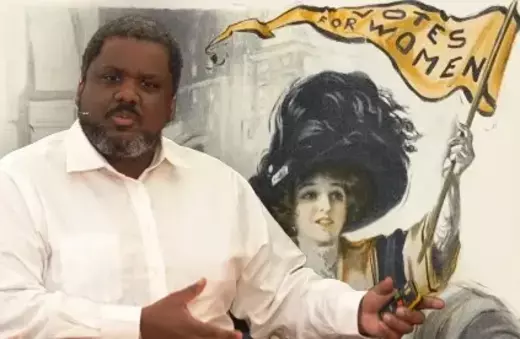We all want a better world with more freedom, technology and less prejudice. At times we appear to make progress, but utopia turns out to be strangely difficult to imagine, let alone achieve. Where once we paraded grand visions of change, many of us now see such goals as best left to the fanatical fringe. As ISIS and Trump demonstrate the dangers of dreaming the future, is the solution simply better, stronger ideals? Do we need utopia now more than ever? Or is there something impossible in the very idea?
In this issue of IAI News, we examine utopia and the limits of imagination. Each of our contributors envisions a utopian future, the ideas that might realise it, and the dangers of trying to get there.
As Trump’s bold plans to limit migration raise alarm, LSE Political Theorist Chandran Kukathas proposes a radical alternative: the abolition of all borders. Next, in the wake of the recent Women’s Marches, author of Women on Top Margaret Heffernan asks: what would a feminist utopia look like?
Turning to technology, the world’s first cyborg Kevin Warwick pictures a near-future where humans outsource their memories and communicate by thought in A Cyborg’s Take on Utopia. And in Forbidden Futures, Goldsmiths computer scientist Kate Devlin, considers the future of sex robots and relationships.
Elsewhere, philosopher and politician Rupert Read argues in The New Utopianism that without rediscovering utopian politics humanity is doomed. And finally, Lacanian psychoanalyst and author of The Utopia Experiment Dylan Evans picks apart the very idea of utopia, suggesting that all hope of sustainability is fantasy.
Issue 53: Utopia
Do we need utopia now more than ever?

Issue 53, 31st January 2017
Want to continue reading?
Get unlimited access to insights from the world's leading thinkers.
Browse our subscription plans and subscribe to read more.
Already a subscriber? Log in
Latest Releases


















Join the conversation